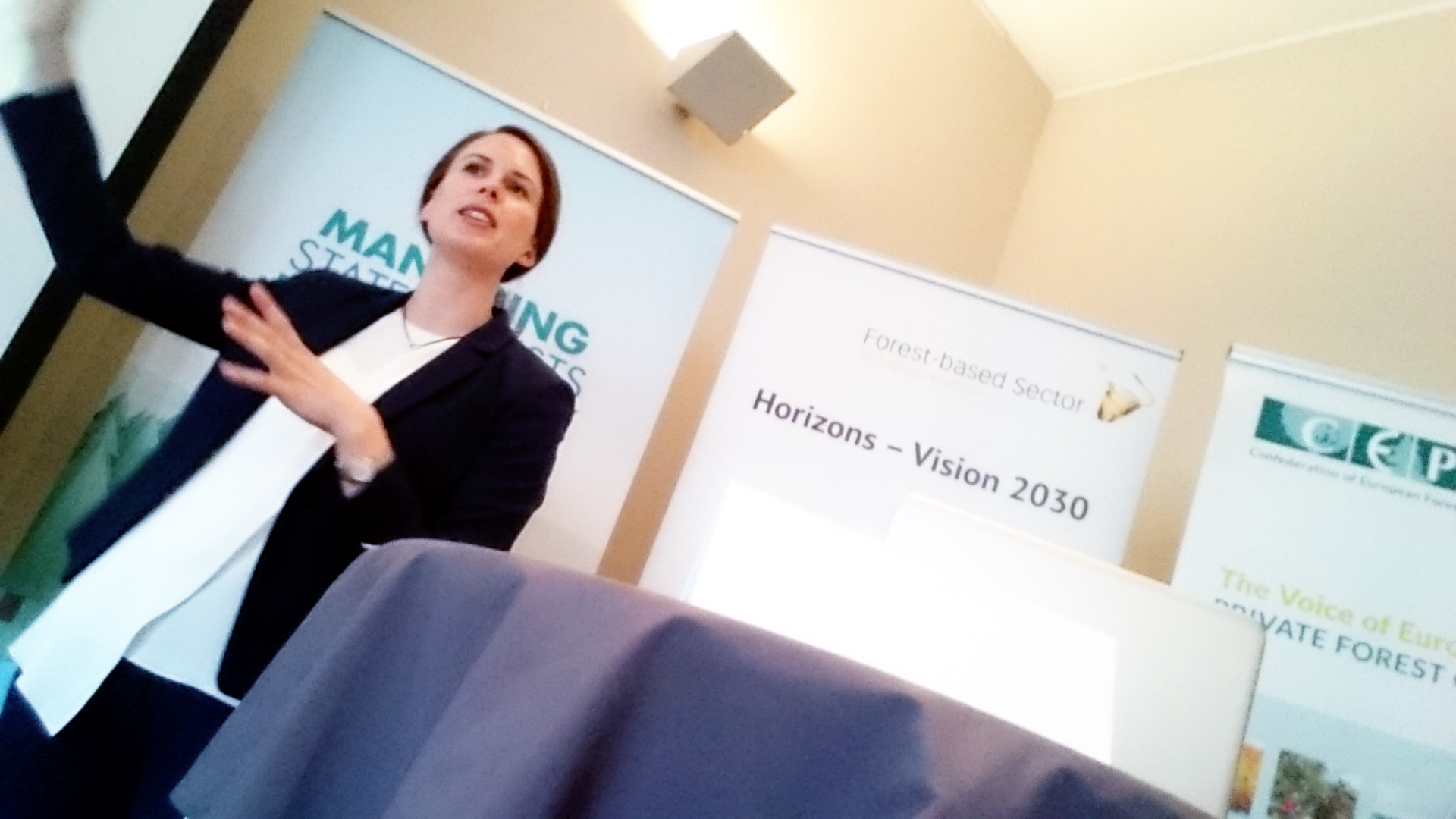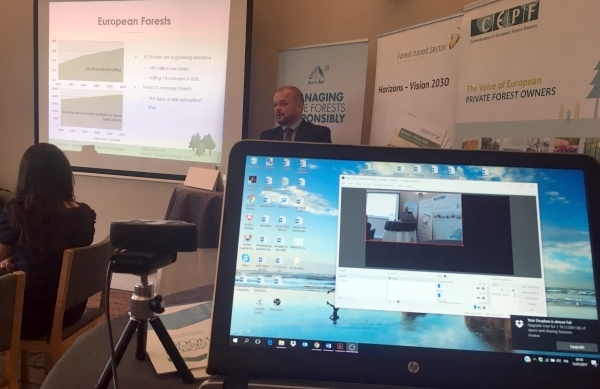The positive impact and potential of sustainable forestry in climate and energy policies should be better recognized, claimed forestry experts at a press breakfast organized at the European Forestry House (EFH) on 12 July 2017, the day after the European Parliament’s Environmental Committee (ENVI) voted on the regulation of greenhouse gas emissions and removals from the Land Use, Land-Use Change and Forestry (LULUCF) sector post-2020. The ENVI vote brings new obstacles rather than taking advantage of forestry’s full potential.
The event was organized by 3 organizations of the EFH – the Confederation of European Forest Owners (CEPF), the European State Forest Association (EUSTAFOR) and FTP – and gathered Belgian journalists and correspondents from other European media outlets.

Sustainably managed forests and its renewable products are not the cause of climate change. Rather, they are part of the solution to combat it. At the press breakfast, journalists had a wide range of questions, ranging from the possible impact of the EP vote on the forest and forest-based sector to the latest innovations and development in the forest-based sector.
Forestry has been and will continue to be a success story
Emma Berglund, Secretary General of CEPF commented on the recent vote by the EP’s ENVI Committee on its LULUCF report, saying that the forest sector was disappointed with the result. The most crucial issue in the robust system of accounting emissions and removals from forests is a properly defined Forest Reference Level.
Unfortunately, the ENVI Committee has kept to a narrow view on the role of forests in climate change mitigation and adaptation and does not exploit the full sustainable potential of forestry to build up the bio-based economy and replace fossil fuels. The ENVI Committee’s views are also in contradiction with the EU Forest Strategy, which stresses the multifunctional role of forests and the multiple benefits they provide.

She explained the three basic ways in which forests help to fight climate change:
– Growing forests sequester CO2
– Forests and their wood products act as a carbon store
– Biomass substitutes for fossil fuels and other energy-intensive materials
“At the moment, European countries which receive the most economic value from their forests are also the ones whose forests provide the greatest climate benefits,” added Berglund.
Towards a bio-based economy
Forests in the EU are a growing resource which today amounts to around 185 million hectares. The forest area has increased by 10 million hectares over the last 25 years, which is comparable to the size of forests in Germany. At the same time, the growing stock of EU forests has increased by 1/3. This proves that European forests have been managed sustainably.
“Only sustainably managed forests and their products can bring long-term climate benefits and ensure a successful energy transition. The use of forest biomass for energy not only provides an alternative to fossil fuels, it also supports employment, rural development and plays a central role in the transition to a bioeconomy,” stated Piotr Borkowski, Executive Director of EUSTAFOR. “In European state forests, fuelwood accounts for some 20 % of the total annual harvest. Increased market demand for biomass for energy is welcomed not only because it makes more efficient use of small-sized and low-quality wood, but also because it brings additional income and thus motivates forest owners to duly tend their forests.”

The risk-based approach proposed by the European Commission to assess sustainable sourcing of forest biomass in the Renewable Energy Directive recast (RED2) is acceptable, as long as it does not interfere with the national legislation on forests and does not negatively impact the EU’s subsidiarity principle.
Borkowski questioned the need to burden forestry with a new set of sustainability criteria because forest management is already highly regulated by the national legislations of Member States.
Unleashing the full power of research and innovation
The journalists were reminded of the vast possibilities which are provided by the entire forest-based sector in the fight against climate change. “Making use of the full potential of forest resources when realizing the sector’s innovation portfolio can contribute to reducing greenhouse gas emissions and increasing carbon stores,” explained Johan Elvnert, Managing Director of FTP. “Carbon is stored in all harvested wood products and in many innovative bio-based materials.

Building with wood, for example, is one of the easiest and smartest ways to combat climate change and uphold the goals of the Paris Agreement.”
“With its unique innovation portfolio and many innovative solutions, the forest-based sector is addressing technological bottlenecks in order to foster the transition to a reliable, sustainable and competitive energy system,” affirmed Elvnert. “The search for potential new ways to substitute for fossil-based materials, fuels and highly energy intensive products is ongoing,” he concluded.

